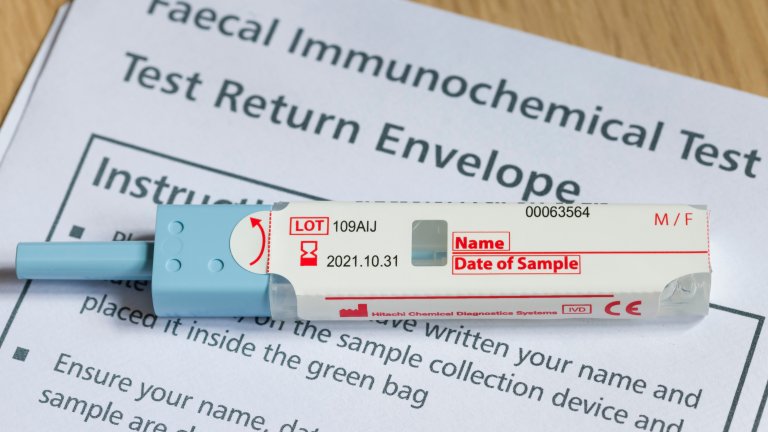
In the Netherlands we have a fecal immunochemical test (FIT) based CRC screening program, which means that only FIT positive individuals (those with blood in their stool test) are referred for colonoscopy. As (pre-)malignant colorectal lesions are thought to bleed, FIT can identify individuals with advanced neoplasia (AN), e.g. CRC or advanced adenomas. However, AN is only found in about 35-40% which means that up to 60% will have no worrying findings during colonoscopy. Therefore the presence of other cancers, that may be located more proximal to the colon (e.g. upper gastrointestinal, oral cavity, nose and throat cancers) should be considered as a possible explanation for a positive FIT.
To obtain a better understanding of the risk of a cancer proximal to the colon in FIT-positive screenees, we collected data from our national CRC screening program. We evaluated a screenees’ risk of being diagnosed with a cancer proximal to the colon within 3 years after participation in the Dutch FIT-based CRC screening program. Recent literature suggests that FIT-positive screenees might also have an increased risk of being diagnosed with other diseases than CRC or cancer proximal to the colon. Therefore, as secondary analyses, we evaluated the cumulative incidence of 10 other prevalent cancer types. Three groups were compared: FIT positive screenees with AN at colonoscopy (FIT+/AN+), FIT positive screenees without AN at colonoscopy (FIT+/AN-) and FIT negative screenees (FIT-). Data from the national screening database was linked to data from the National Cancer Registry.
We included 1,948,075 screenees who participated in the Dutch CRC screening program between 2014 and 2018. The 3-year cumulative incidence of cancers proximal to the colon was 0.7% in FIT+/AN+ screenees (n=65,767), 0.6% in FIT+/AN- screenees (n =50,661), and 0.4% in FIT- screenees (n=1,831,647). We found that FIT-positive screenees were significantly more likely to be diagnosed with cancers proximal to the colon than FIT-negative screenees (P<0.001; HR, 1.55; 95% CI, 1.44–1.67).
We conclude, based on our data, that performing esophagogastroduodenoscopy as an additional procedure in all asymptomatic FIT–positive screenees is not justified, as the 3-year cumulative incidence in FIT-positive screenees is very low (less than 1%). However, we found that FIT-positive screenees also have an increased risk of being diagnosed with multiple other cancer types. Therefore, future research should try to identify which screenees would benefit from additional esophagogastroduodenoscopy, other screening measures, additional lifestyle recommendations or other preventive measures to reduce their future cancer risk.
Link to the website/publication (online, ahead of print): https://pubmed.ncbi.nlm.nih.gov/38697486/
Text by Willemijn de Klaver
Researchers involved
Willemijn de Klaver (Amsterdam UMC, AVL-NKI)
Manon van der Vlugt (Amsterdam UMC)
Manon Spaander (Erasmus MC)
Patrick Bossuyt (Amsterdam UMC)
Evelien Dekker (Amsterdam UMC)
This article was created for Cancer Center Amsterdam.

